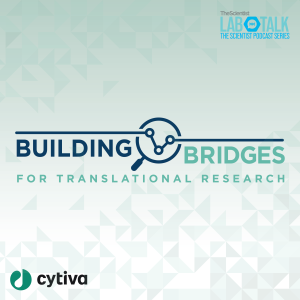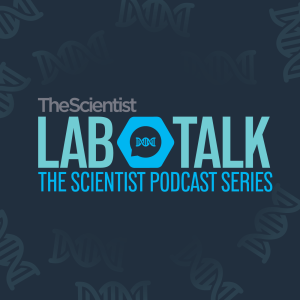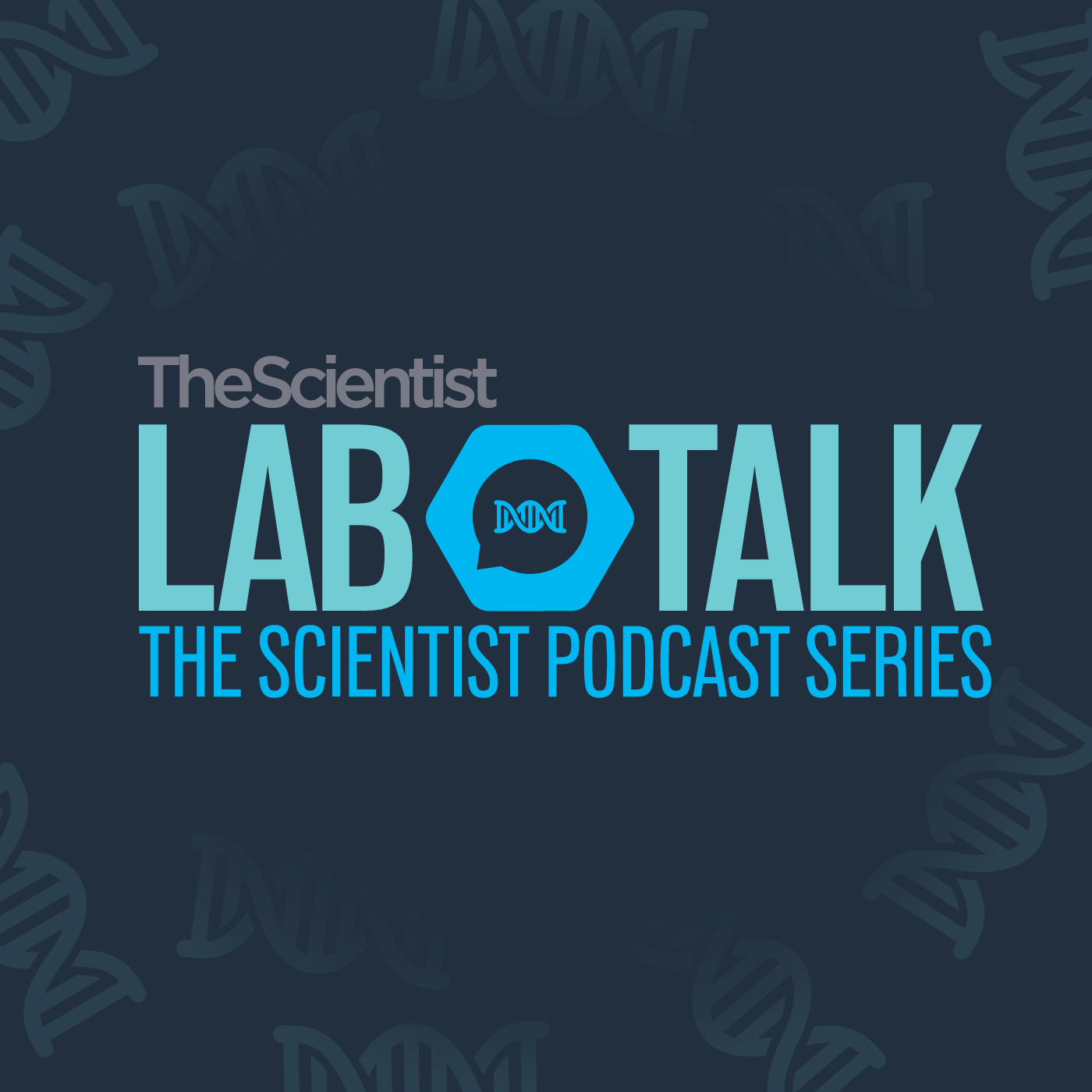Episodes

Wednesday Apr 19, 2023
Wednesday Apr 19, 2023
Translational research cannot be conducted in a vacuum. For a translational researcher to be successful, they need to build strong relationships with individuals, companies, and institutions that will provide useful support and expertise. In this episode, Linda Mathiasson, Strategic Customer Leader for Nucleic Acid Therapeutics at Cytiva, discusses the flourishing translational field of mRNA therapies and opportunities for researchers to form worthwhile partnerships that support their therapeutic endeavors.
Welcome to Building Bridges for Translational Research, a special edition podcast series produced by The Scientist’s Creative Services Team. This series is brought to you by Cytiva, a global provider of technologies and services that advance and accelerate therapeutic development, manufacturing, and delivery.
To take preclinical concepts to the market, translational researchers must build strong relationships and forge fruitful partnerships that support their work. In this podcast series, Niki Spahich from The Scientist’s Creative Services Team talks to groundbreaking translational researchers and industry experts about their experiences developing technologies and therapies for improving human health and our world at large.

Wednesday Apr 12, 2023
Building Bridges for Translational Research - Bringing Gene Therapy Closer to the Clinic
Wednesday Apr 12, 2023
Wednesday Apr 12, 2023
In this episode, Guangping Gao, professor and director of the Horae Gene Therapy Center at the University of Massachusetts Medical School, speaks about developing human gene therapies using recombinant adeno-associated viral vectors, scaling up these therapies, and the future of translational research.
Welcome to Building Bridges for Translational Research, a special edition podcast series produced by The Scientist’s Creative Services Team. This series is brought to you by Cytiva, a global provider of technologies and services that advance and accelerate therapeutic development, manufacturing, and delivery.
To take preclinical concepts to the market, translational researchers must build strong relationships and forge fruitful partnerships that support their work. In this podcast series, Niki Spahich from The Scientist’s Creative Services Team talks to groundbreaking translational researchers and industry experts about their experiences developing technologies and therapies for improving human health and our world at large.

Wednesday Apr 05, 2023
Building Bridges for Translational Research - The Secrets to Start-Up Success
Wednesday Apr 05, 2023
Wednesday Apr 05, 2023
Welcome to Building Bridges for Translational Research, a special edition podcast series produced by The Scientist’s Creative Services Team. This series is brought to you by Cytiva, a global provider of technologies and services that advance and accelerate therapeutic development, manufacturing, and delivery.
To take preclinical concepts to the market, translational researchers must build strong relationships and forge fruitful partnerships that support their work. In this podcast series, Niki Spahich from The Scientist’s Creative Services Team talks to groundbreaking translational researchers and industry experts about their experiences developing technologies and therapies for improving human health and our world at large.
In this episode, serial entrepreneur George Church, professor of genetics and leader of synthetic biology at Harvard’s Wyss Institute, talks about his gene editing research and his strategy for spinning translational projects into start-up companies.

Tuesday Dec 13, 2022
Understanding the Blood Cancer Genomic Landscape
Tuesday Dec 13, 2022
Tuesday Dec 13, 2022
Immunotherapies are promising as a holy grail for cancer treatment, but patient responses to these interventions are often variable in both solid tumors and blood cancers.
In this episode, Iris Kulbatski from The Scientist’s Creative Services Team spoke with Olli Dufva, a physician and doctoral researcher at the University of Helsinki’s Hematology Research Unit, about his work analyzing the genomic landscape of hematological cancers. Coupling next-generation techniques with traditional methods such as flow cytometry, he aims to better understand the complex range of immune characteristics in different cancer subtypes and use that data to predict patient outcomes.
LabTalk is a special edition podcast produced by The Scientist's Creative Services Team, where we explore topics at the leading edge of innovative research. This month’s episode is sponsored by Sartorius.

Wednesday Oct 19, 2022
Exposed: Environmental Echoes in Health - How Toxins Leave Their Cancerous Marks
Wednesday Oct 19, 2022
Wednesday Oct 19, 2022
Through epigenetic mechanisms, some environmental toxicants, such as heavy metals, reversibly alter gene expression patterns that then drive cancer progression. In this episode, Yvonne Fondufe-Mittendorf discusses her work studying environmental toxicants and their effects on DNA methylation and chromatin structure.
Welcome to Exposed: Environmental Echoes in Health, a special edition podcast series produced by The Scientist’s Creative Services Team. This series is brought to you by Van Andel Institute, an independent biomedical research institute devoted to improving human health for generations to come.
While the human body’s cells all use the same set of instructions, they can end up with wildly different features and functions. Beyond the information stored in DNA, factors within a person’s environment, including chemicals, microbes, and their diet, change how cells work. In this series, Niki Spahich from The Scientist’s Creative Services Team talks to researchers from Van Andel Institute who investigate how the environment and behavior change cellular functions through epigenetic processes.

Wednesday Oct 12, 2022
Exposed: Environmental Echoes in Health - Are We What Our Parents Eat?
Wednesday Oct 12, 2022
Wednesday Oct 12, 2022
Substances that enter the body, such as food or chemicals, can make epigenetic changes in the germline that become inherited, affecting the health of future generations. In this episode, Heidi Lempradl discusses her work studying the effects of parental diet on their offspring.
Welcome to Exposed: Environmental Echoes in Health, a special edition podcast series produced by The Scientist’s Creative Services Team. This series is brought to you by Van Andel Institute, an independent biomedical research institute devoted to improving human health for generations to come.
While the human body’s cells all use the same set of instructions, they can end up with wildly different features and functions. Beyond the information stored in DNA, factors within a person’s environment, including chemicals, microbes, and their diet, change how cells work. In this series, Niki Spahich from The Scientist’s Creative Services Team talks to researchers from Van Andel Institute who investigate how the environment and behavior change cellular functions through epigenetic processes.

Wednesday Oct 05, 2022
Exposed: Environmental Echoes in Health - Epigeneticist Turned Microbe Hunter
Wednesday Oct 05, 2022
Wednesday Oct 05, 2022
Welcome to Exposed: Environmental Echoes in Health, a special edition podcast series produced by The Scientist’s Creative Services Team. This series is brought to you by Van Andel Institute, an independent biomedical research institute devoted to improving human health for generations to come.
While the human body’s cells all use the same set of instructions, they can end up with wildly different features and functions. Beyond the information stored in DNA, factors within a person’s environment, including chemicals, microbes, and their diet, change how cells work. In this series, Niki Spahich from The Scientist’s Creative Services Team talks to researchers from Van Andel Institute who investigate how the environment and behavior change cellular functions through epigenetic processes.
Microbes surround us, and they can have surprising effects beyond infection. In this episode, Nick Burton discusses his work discovering new environmental bacteria in backyards and how exposure to both bad or good bugs can affect an organism’s offspring.

Wednesday Sep 28, 2022
The New Era of Neurodegeneration Research
Wednesday Sep 28, 2022
Wednesday Sep 28, 2022
The brain’s intractable nature makes neurodegenerative disorders challenging to study, but modern assays and technologies give scientists a fresh look at this complex organ. In this episode, Niki Spahich from The Scientist’s Creative Services Team spoke with Erdem Gültekin Tamgüney, a professor in the Institute of Physical Biology at Heinrich Heine University Dusseldorf, about technologies driving modern neuroscience research and his own work exploring the link between ischemic stroke and Parkinson’s disease.
LabTalk is a special edition podcast produced by The Scientist's Creative Services Team, where we explore topics at the leading edge of innovative research. This month’s episode is sponsored by PerkinElmer.

Monday May 23, 2022
Transporting Laboratories into the Future with Smart Technology
Monday May 23, 2022
Monday May 23, 2022
As smart devices become commonplace in many homes, they also enter life science laboratories with the promise to enhance productivity, simplify collaborations, and produce reliable results. In this episode, Niki Spahich from The Scientist’s Creative Services team spoke with experts from MilliporeSigma about how smart devices change research for the better.
LabTalk is a special edition podcast produced by The Scientist's Creative Services Team, where we explore topics at the leading edge of innovative research. This month’s episode is sponsored by MilliporeSigma.

Monday Nov 29, 2021
Phagocidal Macrophages: A New Battle Tactic Against Resistant Cancers
Monday Nov 29, 2021
Monday Nov 29, 2021
Cancer immunotherapies are saving lives, but researchers still have a long journey ahead of them. Many cancers that are initially sensitive to immunotherapy acquire resistance over time, while others are resistant from the beginning.
In this episode, Niki Spahich from The Scientist’s Creative Services team spoke with Stephanie Dougan, an associate professor of immunology at Harvard Medical School and a principal investigator at Dana Farber Cancer Institute, about her research developing new immunotherapies for resistant tumors.
LabTalk is a special edition podcast produced by The Scientist’s Creative Services Team, where we explore topics at the leading edge of innovative research. This month’s episode is sponsored by 10x Genomics.

